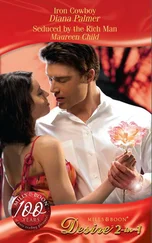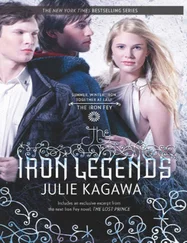There I lay in the dark, listening to the music of the stars and the crackling and humming that accompanied it like the dust of meteors, smiling, my heart filed with gratitude for this good news from afar. The one border they cannot close, I thought: the border upwards, between the Republic of South Africa and the empire of the sky. Where I am due to travel. Where no passport is called for.
Still under the spell of the music (it was, I think, Stoeksome of the old pieces: preludes from the Well-Tempered Clavier, Chopin preludes, Brahms waltzes, from Novello and Augener editions tattered, mottled, dry as dust. I played as badly as ever, misreading the same chords as half a century ago, repeating fingering mistakes grown by now into the bone, never to be corrected. (The bones prized above all by archaeologists, I remember, are those gnarled with disease or splintered by an arrowhead: bones marked with a history from a time before history.)
After I had tired of the sweetness of Brahms I closed my eyes and played chords, searching with my fingers for the one chord I would recognize, when I came upon it, as my chord, as what in the old days we used to call the lost chord, the heart's-chord. (I speak of a time before your time, when, passing down the street on a hot Saturday afternoon, you might hear, faint but dogged from a front parlour, the maiden of the household groping among the keys for that yearned-for, elusive resonance. Days of charm and sorrow and mystery too! Days of innocence!)
' Jerusalem!' I sang softly, playing chords I last heard at my grandmother's knee: 'And was Jerusalem y-builded here?'
Then at last I went back to Bach, and played clumsily, over and over again, the first fugue from Book One. The sound was muddy, the lines blurred, but every now and again, for a few bars, the real thing emerged, the real music, the music that does not die, confident, serene.
I was playing for myself. But at some point a board creaked or a shadow passed across the curtain and I knew he was outside listening.
So I played Bach for him, as well as I could. When the last bar was played I closed the music and sat with my hands in my lap contemplating the oval portrait on the cover with its heavy jowls, its sleek smile, its puffy eyes. Pure spirit, I thought, yet in how unlikely a temple! Where does that spirit find, itself now? In the echoes of my fumbling performance receding through the ether? In my heart, where the music still dances? Has it made its way into the heart too of the man in the sagging trousers eavesdropping at the window? Have our two hearts, our organs of love, been tied for this brief while by a cord of sound?
The telephone rang: a woman from the flats across the road warning me of a vagrant she had spied on my property. 'He is not a vagrant,' I said. 'He is a man who works for me.'
I am going to stop answering the telephone. There is no one I am ready to speak to except you and the fat man in the picture, the fat man in heaven; and neither of you will, I think, call.
Heaven. I imagine heaven, as a hotel lobby with a high ceiling and the Art of Fugue coming softly over the public address system. Where one can sit in a deep leather armchair and be without pain. A hotel lobby full of old people dozing, listening to the music, while souls pass and re-pass before them like vapours, the souls of all. A place dense with souls. Clothed? Yes, clothed, I suppose; but with empty hands. A place to which you bring nothing but an abstract kind of clothing and the memories inside you, the memories that make you. A place without incident. A railway station after the abolition of trains. Listening to the heavenly unending music, waiting for nothing, paging idly through the store of memories.
Will it be possible to sit in that armchair listening to the music without fretting about the house closed up and dark, the cats prowling in the garden, unfed, cross? It must be possible, or what is heaven for? Yet dying without succession is – forgive me for saying this – so unnatural. For peace of mind, for peace of soul, we need to know who comes after us, whose presence fills the rooms we were once at home in.
I think of those abandoned farmhouses I drove past in the Karoo and on the west coast, whose owners decamped to the cities years ago leaving fronts boarded up, gates locked. Now washing flaps on the line, smoke comes from the chimney, children play outside the back door, waving to passing cars.
A land in the process of being repossessed, its heirs quietly announcing themselves. A land taken by force, used, despoiled, spoiled, abandoned in its barren late years. Loved too, perhaps, by its ravishers, but loved only in the bloomtime of its youth and therefore, in the verdict of history, not loved enough.
They open your fingers after the event to make sure you are not trying to take something with you. A pebble. A feather. A mustard seed under your fingernail.
It is like a sum, a labyrinthine sum, pages long, subtraction upon subtraction, division upon division, till the head reels. Every day I attempt it anew, in my heart the flicker of a hope that in this one case, my case, there may have been a mistake. And every day I stop before the same blank wall: death, oblivion. Dr Syfret in his rooms: 'We must face the truth.' That is to say: we must face the wall. But not he: I.
I think of prisoners standing on the brink of the trench into which their bodies will tumble. They plead with the firing-squad, they weep, they joke, they offer bribes, they offer everything they possess: the rings off their fingers, the clothes off their backs. The soldiers laugh. For they will take it all anyway, and the gold from their teeth too.
There is no truth but the shock of pain that goes through me when, in an unguarded moment, a vision overtakes me of this house, empty, with sunlight pouring through the windows on to an empty bed, or of False Bay under Hue skies, pristine, deserted – when the world I have passed my life in manifests itself to me and I am not of it. My existence from day to day has become a matter of averting my eyes, of cringing. Death is the only truth left. Death is what I cannot bear to think. At every moment when I am thinking of something else, I am not thinking death, am not thinking the truth.
I try to sleep. I empty my mind; calm, begins to steal over me. I am falling, I think, I am faffing: welcome, sweet sleep. Then at the very edge of oblivion something looms up and pulls me back, something whose name can only be dread. I shake myself free. I am awake in my room in my bed, all is well. A fly settles on my cheek. It cleans itself. It begins to explore. It walks across my eye, my open eye. I want to blink, I want to wave it away, but I cannot. Through an eye that is and is not mine I stare at it. It licks itself, if that is the word. There is nothing in those bulging organs that I can recognize as a face. But it is upon me, it is here: it struts across me, a creature from another world.
Or: It is two in the afternoon. I am lying on the sofa or in bed, trying to keep the weight off my hip, where the pain is worst. I have a vision of Esther Williams, of plump girls in flowered bathing costumes swimming in effortless backstroke formation through sky-blue, rippling waters, smiling and singing. Invisible guitars strum; the mouths of the girls, bows of vivid scarlet lipstick, form words. What are they singing? Sunset… Farewell… Tahiti. Longing sweeps through me for the old Savoy bioscope, for tickets at one and fourpence in a currency gone forever, melted down save for a few last farthings in my desk drawer, on one side George VI, the good king, the stammerer, on the other a pair of nightingales. Nightingales. I have never heard nightingale-song and never will. I embrace the longing, embrace the regret, embrace the king, the swimming girls, embrace whatever will occupy me.
Читать дальше












